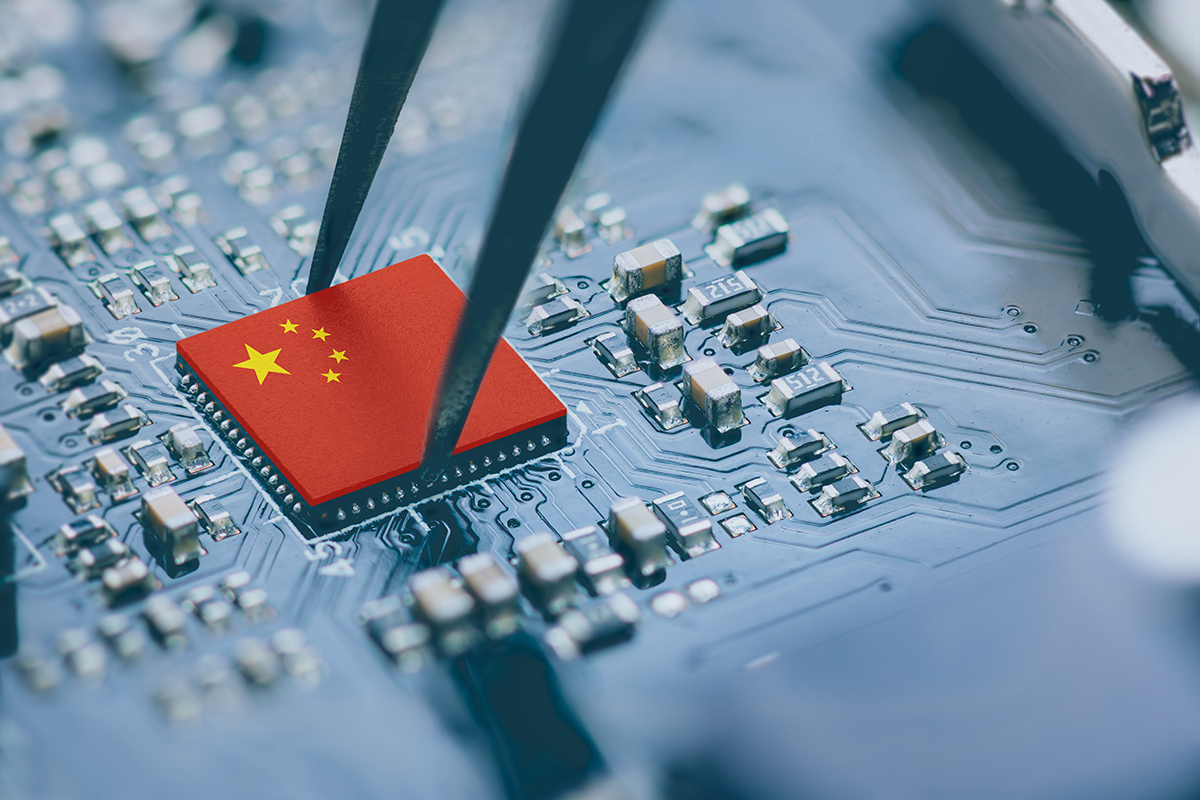In a strategic maneuver aimed at securing its foothold in advanced technologies, China has unleashed a formidable $47.5 billion investment into its semiconductor industry. This announcement arrives amidst heightened tensions spurred by the United States’ tightening grip on chip exports to China, amplifying the stakes in the global tech arena.
This mammoth investment marks the largest-ever initiative of its kind in China, emblematic of President Xi Jinping’s ambition to position the nation as a powerhouse in the realm of technology. Bolstered by contributions from six major state-owned banks, including heavyweights like ICBC and China Construction Bank, the move underscores a concerted effort to fortify China’s technological capabilities in the face of mounting geopolitical headwinds.
In alignment with China’s sweeping “Made in China 2025” vision, the investment sets out to catapult the nation to the forefront of pivotal industries such as artificial intelligence (AI), 5G wireless, and quantum computing. With a resolute aim to clinch global leadership in these critical domains, China’s dedication to technological advancement remains resolute.
This $47.5 billion infusion represents the third phase of the China Integrated Circuit Industry Investment Fund, building upon prior initiatives geared towards enhancing the country’s semiconductor prowess. Nevertheless, past endeavors have been clouded by corruption scandals, casting a shadow over some of the state-owned chip companies.
Despite these internal challenges, the latest investment epitomizes China’s determination to surmount external hurdles, particularly in light of stringent US export controls on advanced chips and chip-making equipment. The Biden administration’s measures, coupled with efforts to rally allies such as the Netherlands and Japan to adopt similar restrictions, have heightened the rivalry between the two economic powerhouses.
In retaliation, China has enforced its own export controls, targeting critical raw materials pivotal to the global chip-making industry. These tit-for-tat actions underscore the escalating tensions in the tech arena and underscore the high stakes involved in the quest for technological supremacy.
China’s commitment to technological self-sufficiency was recently underscored by Huawei’s milestone achievement – the introduction of a smartphone powered by a domestically produced 7-nanometer processor. Despite US efforts to curb China’s access to foreign technology, this feat showcased China’s prowess in innovation and its capacity to churn out cutting-edge semiconductor technology.
During a meeting with Dutch Prime Minister Mark Rutte, President Xi Jinping reiterated China’s steadfast commitment to technological advancement, highlighting the nation’s resolve to press ahead despite external pressures. The Netherlands, home to ASML, the world’s leading manufacturer of extreme ultraviolet lithography machines crucial for advanced semiconductor production, has itself grappled with restrictions on exporting such equipment to China.
ASML’s predicament in shipping certain lithography machines to China due to Dutch government prohibitions underscores the intricate dynamics shaping the global tech supply chain. As geopolitical tensions continue to simmer, countries are increasingly confronted with the challenge of striking a delicate balance between economic interests and national security imperatives.
China’s monumental $47.5 billion investment in its semiconductor industry marks a significant stride in its quest for technological preeminence. As the global tech race intensifies, the ramifications loom large, with the outcome poised to exert a profound influence on the trajectory of innovation and the redistribution of economic power on a global scale.







